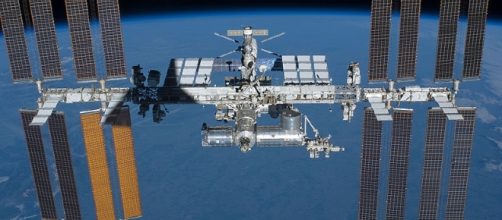Both houses of Congress, by overwhelming bi-partisan margins, has passed a bill imposing stiff sanctions on Russia, Iran, and North Korea in retaliation for the various misdeeds those countries have committed. President Donald Trump is expected to sign the bill into law, if for nothing else to avoid the humiliation of seeing his veto overridden.
Russia, in particular, has threatened retaliation for the sanctions and has already started to do so by expelling some American diplomats and reclaiming some real estate used by the American embassy in Moscow.
Keith Cowing speculates that Vladimir Putin may go further, by using the International Space Station partnership with the United States to inflict pain.
The American Russian space alliance has been of mutual benefit
No question exists that the partnership that was struck by President Bill Clinton to bring Russia in as a partner in the international space station has been of mutual benefit. Russia was able to preserve its crewed space program that otherwise might have fallen by the wayside after the end of the Cold War. The United States got the benefit of Russian expertise and experience. Almost as important, the Russian partnership in the ISS gave the project a diplomatic purpose that ended the political squabbling that had resulted in two near run attempts to cancel it in the Congress.
Even with the chilling of relations with Russia as a result of Vladimir Putin’s imperial ambitions, the partnership in space has continued to go well. However, Putin has threatened to bar American astronauts to the ISS before. Since the end of the space shuttle program, Russia has the only means to fly people into space. Putin could very well carry out the threat, at least temporarily.
The consequences of an ISS retaliation by Russia
The bill passed by the House and the Senate specifically exempts space cooperation from any sanctions regime with Russia. Cowing speculates that this provision is a signal that the ISS is regarded as critical to the United States and that Putin may act accordingly.
On the other hand, the Russian leader doubtless knows that fact already.
The problem with Russia retaliating against the United States by barring its astronauts to the ISS is that it is not only an act that cannot be quickly walked back from but also it would have only a temporary effect/. The United States is expected to regain its space faring capability in 2018 with the flights of the first commercially operated crewed spacecraft, the SpaceX Dragon, and the Boeing Starliner. Russia would, therefore, have alienated the United States to no great purpose and with lasting consequences that it might find painful to endure.


